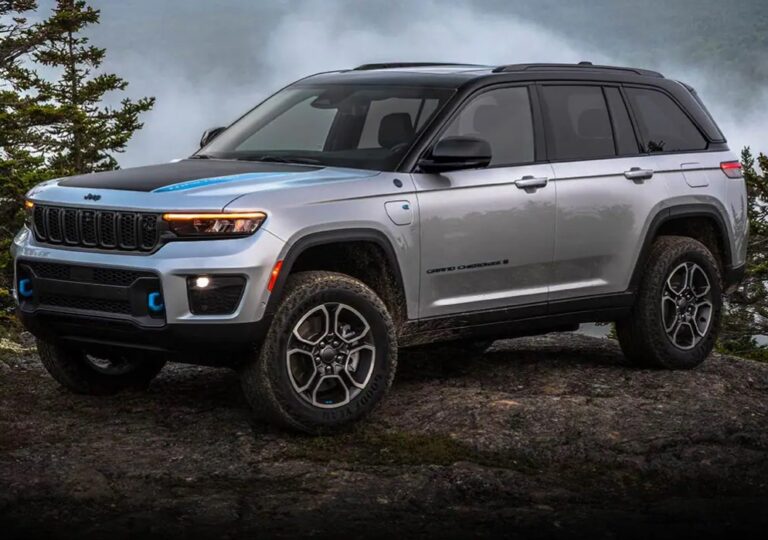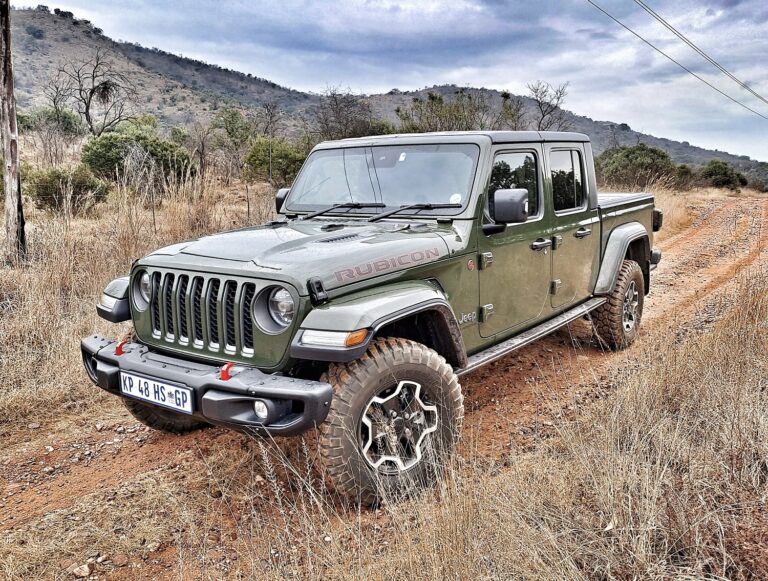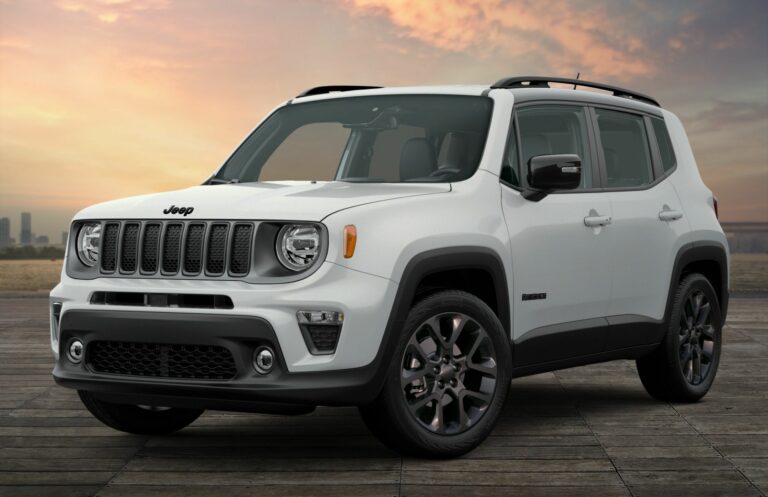2002 Jeep Grand Cherokee Engine For Sale: A Comprehensive Buyer’s Guide
2002 Jeep Grand Cherokee Engine For Sale: A Comprehensive Buyer’s Guide /jeeps.truckstrend.com
The 2002 Jeep Grand Cherokee, a stalwart of the SUV world, remains a popular choice for its rugged capability, comfortable ride, and timeless design. However, like any vehicle approaching two decades on the road, its heart – the engine – can eventually give out. When faced with a failing or failed engine, owners often find themselves at a crossroads: scrap the beloved Jeep or invest in a replacement engine? For many, the latter is a highly economical and practical solution, breathing new life into a vehicle that still has much to offer. This guide delves into everything you need to know about finding and purchasing a 2002 Jeep Grand Cherokee engine for sale, ensuring you make an informed decision.
Understanding the Heart of Your 2002 Jeep Grand Cherokee
2002 Jeep Grand Cherokee Engine For Sale: A Comprehensive Buyer’s Guide
Before embarking on the search for a replacement, it’s crucial to understand the engine options originally available for the 2002 Jeep Grand Cherokee (WJ series). Knowing which engine you have, or which one you need, is the first and most critical step.
- 4.0L Inline-6 PowerTech (Cherokee/Grand Cherokee): This legendary straight-six engine (code ERH) is renowned for its durability and simplicity. It’s a workhorse, offering reliable performance, though it can suffer from cylinder head cracks (especially between cylinders 3 and 4) at high mileage, and occasional oil pressure issues. It was the standard engine for many trims.
- 4.7L V8 PowerTech (Grand Cherokee): The 4.7L V8 (code EVA/EVB) offered significantly more power and torque, making it a popular choice for those seeking enhanced performance or towing capability. While generally robust, it has a known susceptibility to "sludge" buildup if oil changes are neglected, which can lead to lifter noise and bearing failure. Some early versions also had issues with dropped valve seats.
- 2.7L I5 Diesel (Limited Markets): Less common in North America, the 2.7L CRD (Common Rail Diesel) engine, sourced from Mercedes-Benz, was available in certain international markets. This engine offers excellent fuel economy and torque but finding parts, including entire engines, can be challenging outside of specific regions. For the purpose of this guide, we will focus primarily on the more common 4.0L and 4.7L gasoline engines.
Identifying your specific engine is usually as simple as checking your vehicle’s VIN (Vehicle Identification Number) or the engine code stamped on the block. This ensures you purchase a compatible replacement.
Why Consider a Replacement Engine?

The decision to replace an engine rather than buy a new vehicle often comes down to several compelling factors:
- Cost-Effectiveness: A replacement engine, even a high-quality remanufactured one, is almost always significantly cheaper than purchasing a new or even a reliable used vehicle.
- Familiarity and Sentimental Value: You know your Jeep’s history, quirks, and capabilities. Replacing the engine allows you to keep a vehicle you’re comfortable with and potentially have an emotional attachment to.
- Known Issues vs. Unknowns: While your current engine may have failed, the rest of your Jeep (transmission, suspension, body) might be in excellent condition. A new-to-you used car introduces a whole new set of potential, unknown problems.
- Extending Vehicle Life: A healthy engine can give your 2002 Grand Cherokee many more years of reliable service, making it a worthwhile investment.
- Environmental Impact: Repairing and extending the life of an existing vehicle is often more environmentally friendly than manufacturing a new one.

Types of Replacement Engines Available
When searching for a 2002 Jeep Grand Cherokee engine for sale, you’ll encounter a few main categories, each with its own benefits and drawbacks:

- Used Engines (Salvage/Junk Yard):
- Pros: Most affordable option. Readily available.
- Cons: Unknown history, mileage, and maintenance. No guarantee of longevity. Often come with limited or no warranty. Risk of buying another "problem" engine.
- Remanufactured/Rebuilt Engines:
- Pros: Engines are completely disassembled, cleaned, inspected, and critical components (like pistons, rings, bearings, camshafts, valvetrain) are replaced or machined to new specifications. They often come with a substantial warranty (e.g., 1-3 years, unlimited mileage). Offer "like-new" performance and reliability.
- Cons: Higher cost than used engines. Can have a core charge (see below).
- Rebuilt Engines (Local Shop):
- Pros: Can be customized to your specifications, local support.
- Cons: Quality varies greatly depending on the rebuilder’s expertise and parts used. Warranty might be limited to the shop.
- New Crate Engines:
- Pros: Brand new, highest quality, full manufacturer warranty.
- Cons: Extremely rare for a vehicle of this age and typically the most expensive option, often prohibitively so.
For most 2002 Grand Cherokee owners, a remanufactured engine offers the best balance of cost, reliability, and peace of mind.
Where to Buy a 2002 Jeep Grand Cherokee Engine
The market for replacement engines is vast. Here are the most common places to look:
- Online Engine Suppliers: Dedicated websites (e.g., LKQ Online, Jasper Engines, ATK Engines, Powertrain Products) specialize in selling used, rebuilt, and remanufactured engines. They often have extensive inventories, detailed product descriptions, and shipping options.
- Local Salvage Yards/Auto Recyclers: A physical junkyard can be a good source for used engines, allowing you to inspect the engine (if accessible) before purchase. Prices may be negotiable, but warranties are often very limited.
- eBay and Other Online Marketplaces: You can find both private sellers and larger businesses selling engines. Exercise caution, thoroughly check seller ratings, and confirm warranty details before committing.
- Local Mechanics/Repair Shops: Many shops have relationships with engine suppliers and can source an engine for you, often including installation in the price.
- Dealerships: While they might not stock used or remanufactured engines for older models, they can often order new crate engines (if available) or connect you with their preferred remanufacturer.
Key Considerations Before Purchase
Before handing over your hard-earned cash, keep these vital points in mind:
- Engine Compatibility (VIN Check): This is paramount. Even within the 4.0L or 4.7L families, there can be subtle variations in sensors, wiring harnesses, or accessory mounts. Always provide your vehicle’s VIN to the seller to ensure the engine is a direct match for your specific year, make, model, and original engine type.
- Warranty: This is your safety net. Understand the terms:
- Duration: How long is it valid (e.g., 90 days, 1 year, 3 years)?
- Mileage: Is there a mileage limit?
- Coverage: What does it cover (parts only, parts and labor)?
- Exclusions: What voids the warranty (e.g., improper installation, overheating, lack of maintenance)?
- Transferability: Is it transferable if you sell the vehicle?
- Mileage (for Used Engines): Lower mileage is generally better, but always verify if possible. Ask for documentation.
- Core Charge: Many remanufactured and some used engine sellers require a "core charge." This is a refundable deposit you pay upfront, which is returned to you when you send your old engine (the "core") back to the seller. Ensure your old engine is complete and not severely damaged to qualify for the full refund.
- Shipping Costs: Engines are heavy and bulky. Shipping can be a significant additional cost, especially for cross-country deliveries. Factor this into your budget.
- Installation Costs: If you’re not doing the swap yourself, get quotes from reputable mechanics. Installation can range from $800 to $2000+, depending on labor rates and additional parts needed (gaskets, fluids, hoses, belts).
- Return Policy: Understand the seller’s return policy in case the engine arrives damaged or is not as described.
The Buying Process: A Step-by-Step Guide
- Accurate Diagnosis: Confirm your current engine is truly beyond repair or that replacement is the most cost-effective solution. Get a professional opinion.
- Determine Engine Type: Confirm your specific engine (4.0L I6 or 4.7L V8) using your VIN.
- Set Your Budget: Factor in the engine cost, shipping, core charge, and installation (if applicable).
- Research Sellers: Look for reputable engine suppliers with good reviews and clear warranty policies.
- Ask Detailed Questions:
- "Is this engine compatible with my VIN?"
- "What is the exact mileage (for used)?"
- "What is the warranty period and what does it cover?"
- "What is the core charge, and what are the requirements for core return?"
- "What is the estimated shipping cost and delivery time?"
- "Are accessories included (e.g., intake manifold, exhaust manifold, alternator, power steering pump)? Often they are not, or are only included for core purposes."
- Review Warranty and Return Policy: Get it in writing.
- Arrange Purchase and Shipping: Ensure proper packaging and delivery insurance.
- Professional Installation (Recommended): Unless you are an experienced mechanic, professional installation is highly recommended to ensure proper function and warranty validity.
Tips for a Successful Engine Swap
- New Gaskets and Seals: Always replace all gaskets and seals (oil pan, valve covers, intake, exhaust, rear main seal) on the "new" engine before installation, even if it’s a remanufactured unit.
- Fluid Flush: Use fresh, high-quality fluids (engine oil, coolant, power steering fluid, transmission fluid if necessary).
- New Filters: Install new oil, air, and fuel filters.
- Inspect Accessories: Check the condition of your existing alternator, starter, power steering pump, and A/C compressor. It might be a good time to replace any worn components.
- Hoses and Belts: Replace old hoses and belts as a preventative measure.
- Thorough Cleaning: Clean the engine bay and all mating surfaces thoroughly before installation.
- Break-in Procedure: If installing a remanufactured engine, follow the manufacturer’s specific break-in procedure (often involves a specific initial oil change interval and avoiding heavy loads for the first few hundred miles).
Potential Challenges and Solutions
- Engine Not as Described: If the engine arrives damaged, incomplete, or is not the correct type, document everything with photos and contact the seller immediately. Refer to your return policy.
- Installation Issues: If you’re doing a DIY swap and run into problems, don’t hesitate to consult online forums, repair manuals, or seek professional help. Incorrect installation can void your warranty.
- Hidden Damage After Installation: This is where a robust warranty is crucial. If a major issue arises shortly after installation, initiate a warranty claim with the seller.
- Finding the Right Engine: The 2002 Grand Cherokee is an older vehicle. It might take some searching to find the exact engine type you need, especially if you’re looking for low-mileage used options or a specific remanufacturer. Be patient and cast a wide net.
2002 Jeep Grand Cherokee Engine For Sale: Estimated Price Table
Prices are estimates and can vary based on seller, warranty, mileage (for used), current market demand, and availability. Shipping costs are extra.
| Engine Type | Condition | Typical Price Range (USD) | Key Features / Notes | Warranty (Typical) |
|---|---|---|---|---|
| 4.0L I6 PowerTech (ERH) | Used (Salvage) | $600 – $1,200 | Varies widely in mileage (50k-200k+). Risk of unknown issues. Check for visible leaks or damage. Often sold "as-is" or with very limited warranty. | 30-90 Days |
| 4.0L I6 PowerTech (ERH) | Remanufactured | $2,000 – $3,500 | Disassembled, cleaned, inspected; critical components replaced or machined to new specs. Often includes new gaskets, seals. Excellent reliability. May require core return. | 1-3 Years / Unlimited Mi |
| 4.7L V8 PowerTech (EVA/EVB) | Used (Salvage) | $800 – $1,500 | Higher risk due to common sludge issues if not maintained. Check for signs of neglect. Mileage varies. | 30-90 Days |
| 4.7L V8 PowerTech (EVA/EVB) | Remanufactured | $2,500 – $4,000 | Thoroughly reconditioned, often with upgraded components to address common failure points (e.g., improved oiling, stronger valve seats). May require core return. | 1-3 Years / Unlimited Mi |
| 2.7L I5 Diesel (CRD) | Used / Reman. | $2,000 – $5,000+ | Extremely rare in North America. Prices highly variable depending on source and condition. Often imported. Parts availability can be a challenge. | Varies, often limited |
| Installation Cost (Labor Only) | Professional | $800 – $2,000+ | Varies by shop rates and complexity. Does not include cost of new fluids, filters, hoses, or accessory parts. | Typically labor warranty |
Note: Prices do not include shipping, core charges, or additional parts needed for installation (e.g., fluids, filters, belts, hoses).
Frequently Asked Questions (FAQ)
Q1: How long does an engine swap typically take?
A1: For an experienced mechanic, an engine swap on a 2002 Jeep Grand Cherokee can take 15-25 hours of labor. This translates to 2-4 days in a shop, depending on their workload and any unforeseen issues. DIY can take significantly longer.
Q2: Is it worth replacing the engine on a 2002 Jeep Grand Cherokee?
A2: Absolutely, for many owners. If the rest of the vehicle (transmission, frame, body, interior) is in good condition, replacing the engine is often a much more cost-effective solution than buying another used vehicle, which might have its own hidden problems.
Q3: What’s the difference between a "rebuilt" and "remanufactured" engine?
A3: While often used interchangeably, "remanufactured" typically implies a more thorough, factory-like process. A remanufactured engine is fully disassembled, all wear parts are replaced with new or re-machined parts to OEM specifications, and it’s tested to meet original performance standards. A "rebuilt" engine might only address the failed components, with less emphasis on bringing all wear components back to "new" spec. Always ask for specifics.
Q4: Do I need to replace other components when swapping an engine?
A4: While not always strictly necessary, it’s highly recommended to replace certain components for preventative maintenance: new fluids (oil, coolant), all filters (oil, air, fuel), spark plugs, engine mounts, and often hoses and belts. It’s also a good time to inspect the starter, alternator, and power steering pump, as they are easily accessible during the swap.
Q5: Can I install the engine myself?
A5: An engine swap is a complex mechanical task requiring specialized tools, significant technical knowledge, and often a lift or engine hoist. If you have extensive automotive experience and the right equipment, it’s possible. However, for most individuals, professional installation is recommended to ensure proper function, avoid costly mistakes, and maintain the engine’s warranty.
Conclusion
Finding a "2002 Jeep Grand Cherokee engine for sale" can seem daunting, but with the right knowledge and a methodical approach, it’s a straightforward process that can save you thousands and extend the life of your beloved SUV. By understanding your engine type, exploring the various replacement options, asking the right questions, and prioritizing a strong warranty, you can confidently navigate the market. A successful engine swap means many more miles of adventure in your capable Jeep Grand Cherokee, proving that sometimes, the best upgrade is giving your existing vehicle a brand-new heart.






